Cats are notorious for their extensive napping habits, causing many cat owners to wonder what drives these charming creatures to spend so much time asleep. While it might be tempting to chalk it up to laziness, the reality is far more complex and intriguing. From evolutionary instincts to health reasons, a cat’s sleep patterns are as multifaceted as their mysterious personalities. Here are 14 surprising reasons your cat might be clocking in those extra hours of slumber.
1. Their Ancestors Are To Blame
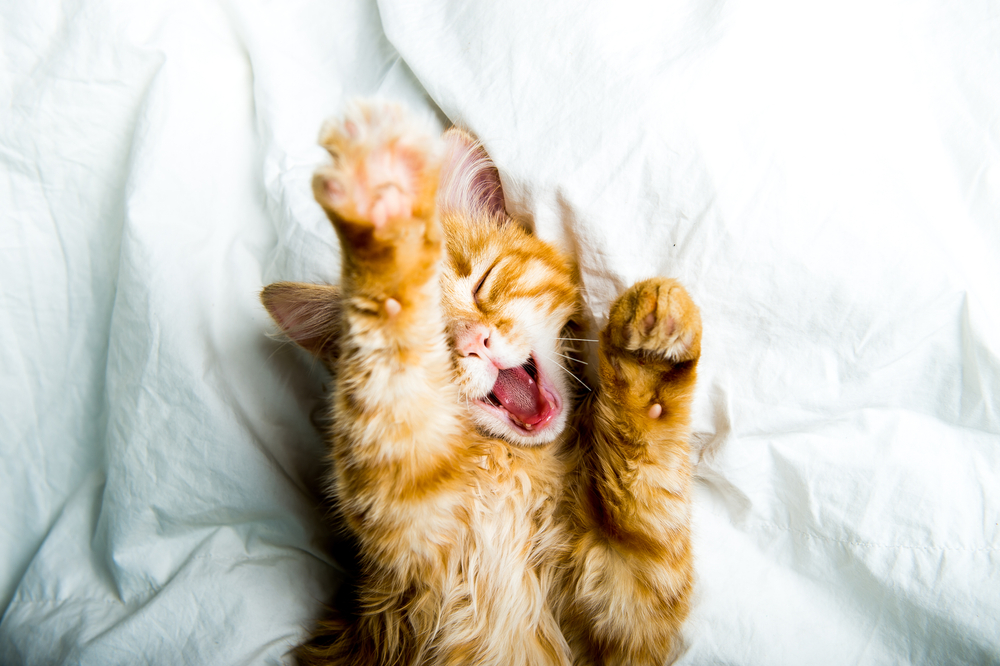
Your cat’s long hours of sleep may stem from an evolutionary predisposition inherited from their wild ancestors. In the wild, big cats like lions and tigers needed to conserve energy for hunting, which involved bursts of high-energy activity followed by extended rest periods. Domestic cats have retained this survival trait, even though their hunting usually consists of batting at a toy mouse. According to National Geographic, these instincts serve as a reminder of the wild roots lying just beneath the surface of your fluffy companion.
Behavioral studies have shown that even in domestic settings, cats will exhibit a surge of energy during dawn and dusk, times when their wild ancestors would have been most active. This crepuscular activity pattern means your cat’s lengthy naps during the day and night are actually just recuperation for their natural hunting peaks. It’s not just a matter of preference; it’s hardwired into their biology. Understanding this helps you appreciate these slumber periods as a natural aspect of their life.
2. They’re Refueling Their Tanks
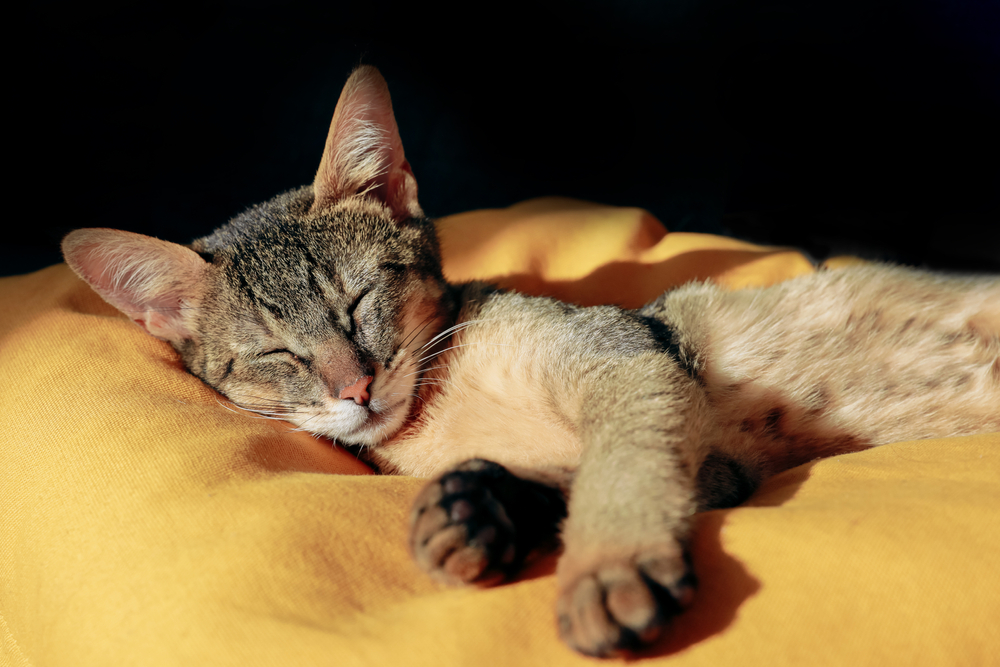
At first glance, it may seem like your cat is conserving energy for a marathon that never happens. But in truth, their bodies are designed to perform short, rapid bursts of energy, which require significant recovery time. Cats are sprinters, not marathon runners, and that’s precisely why they need those hours sprawled out on your sofa. It’s about balance; they’re hardwired to play hard and rest harder.
This pattern is also part of how cats manage to stay nimble and reactive at a moment’s notice. By banking extensive restful periods, they ensure that they remain primed for action, even if the action is just a late-night dash around the house. When you see your cat sleeping, think of it as them charging their internal batteries. Every snooze session is a strategic move in their energy management playbook.
3. The Age Factor
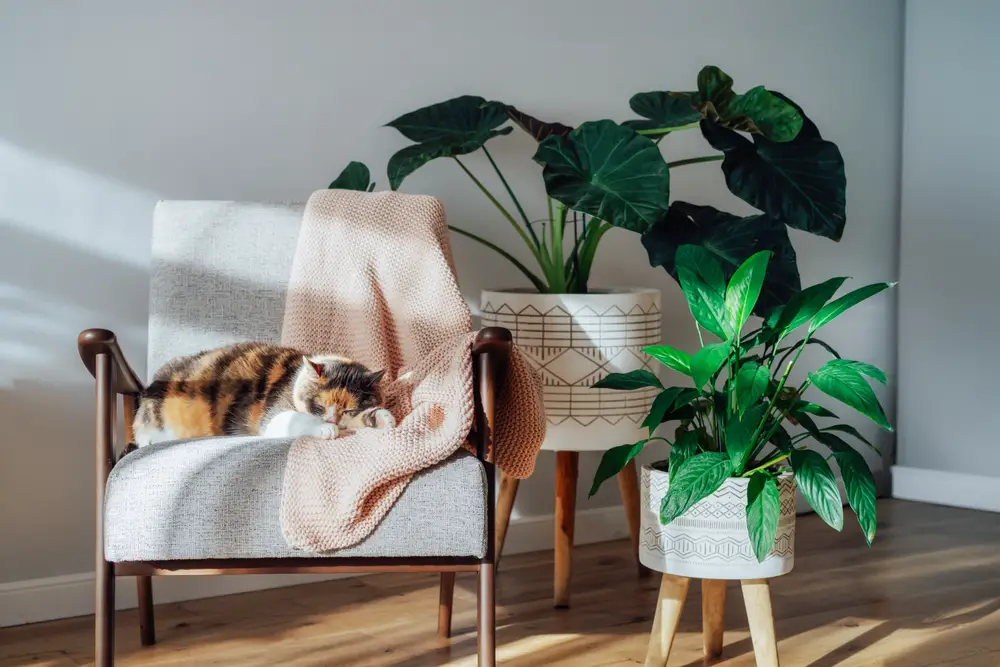
Age plays a significant role in how much your cat sleeps. Kittens and senior cats require more rest compared to adult cats in their prime. Kittens need sleep to support their rapid growth, while older cats need it to recharge and maintain their health. Veterinary expert Dr. Jane Brunt notes that as cats age, they often spend even more time sleeping, sometimes clocking up to 20 hours a day.
With kittens, sleep helps in the development of their central nervous system, muscles, and bones. Their active growth and boundless energy require substantial downtime for proper development. Meanwhile, senior cats use sleep to recuperate from the wear and tear of their years. Recognizing these age-related differences can help you tailor your care to your cat’s specific life stage needs.
4. They’re Indoor vs. Outdoor Lifestyle
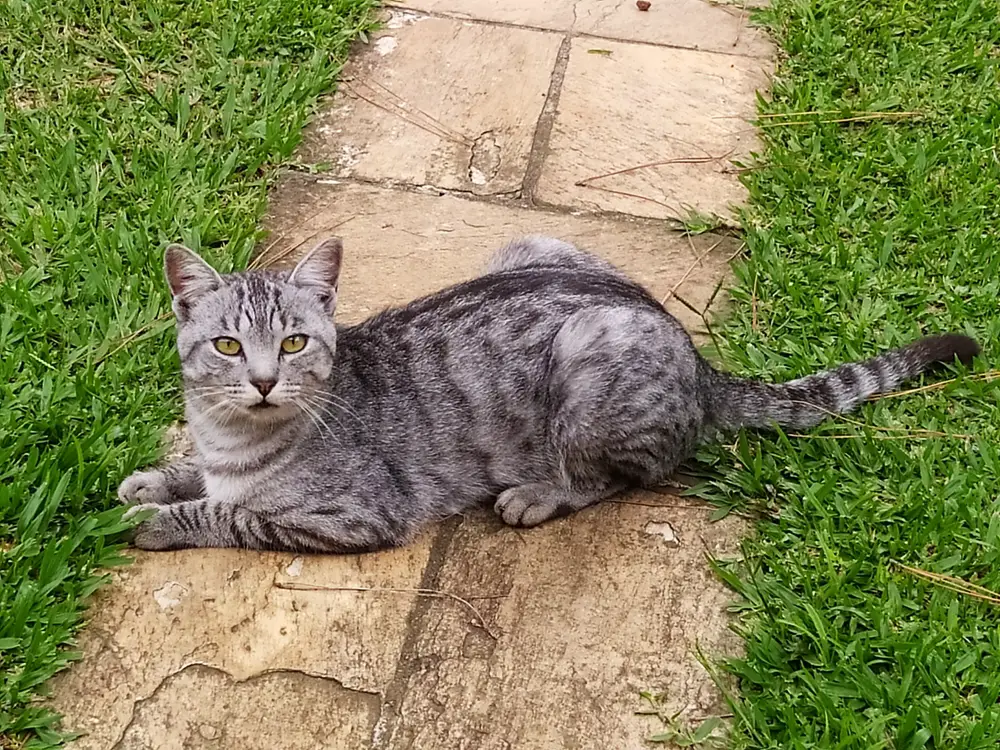
The environment in which your cat resides can significantly impact their sleep patterns. Indoor cats generally sleep more than their outdoor counterparts because they lack the environmental stimuli that keep outdoor cats busy. An outdoor cat’s day might be filled with exploring, hunting, or simply observing the ever-changing world outside. In contrast, indoor cats often have fewer outlets for their instincts, leading to longer periods of rest.
The coziness and safety of a home environment can also contribute to longer sleep sessions. Without the constant need to be alert for potential threats or the demand of hunting for food, indoor cats can afford to be more relaxed in their sleep habits. Ensuring your indoor cat has enough playtime and stimulation can help balance their daily activity levels. This balance will encourage a more engaging and enriched lifestyle, even if the sleeping hours remain long.
5. They’re Getting Their Beauty Sleep
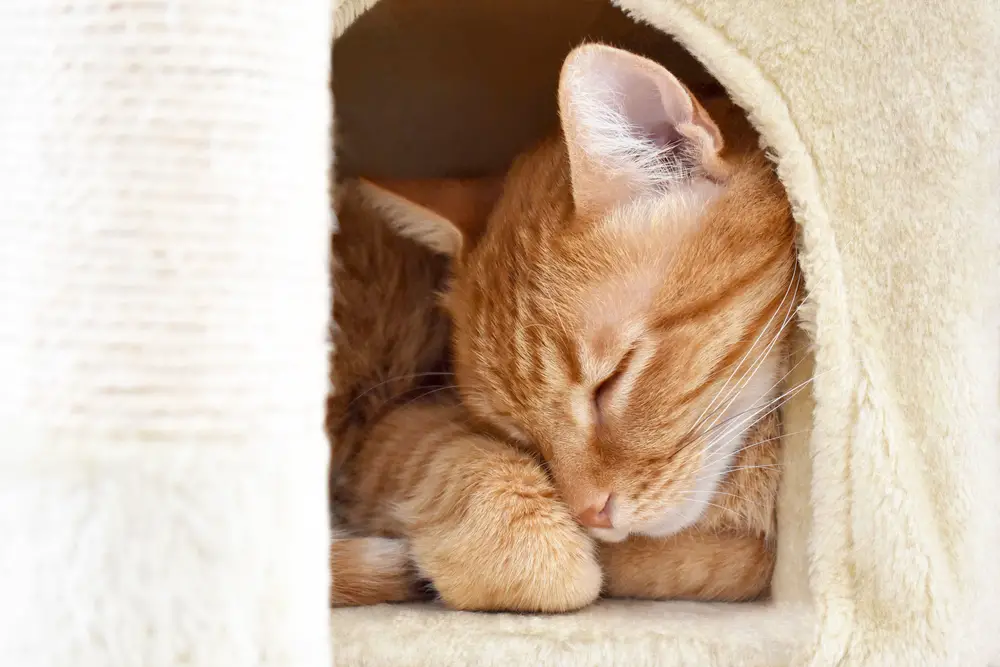
Sleep is a vital component of your cat’s overall health and well-being. When your cat is unwell or stressed, you may notice changes in their sleeping patterns, either sleeping more or less than usual. Veterinarian Dr. Karen Becker points out that changes in sleep can serve as indicators of potential health issues. It’s essential to monitor these patterns closely, as they can provide early clues about your cat’s health status.
Cats use sleep to recover from physical exertion and illness, much like people do. If you notice a significant shift in their sleep habits, it might be time to consult a vet. A thorough check-up can rule out any underlying health issues that might be affecting their sleep. Being proactive about your cat’s sleep can help you ensure they remain healthy and happy.
6. They’re Taking A Mental Health Rest
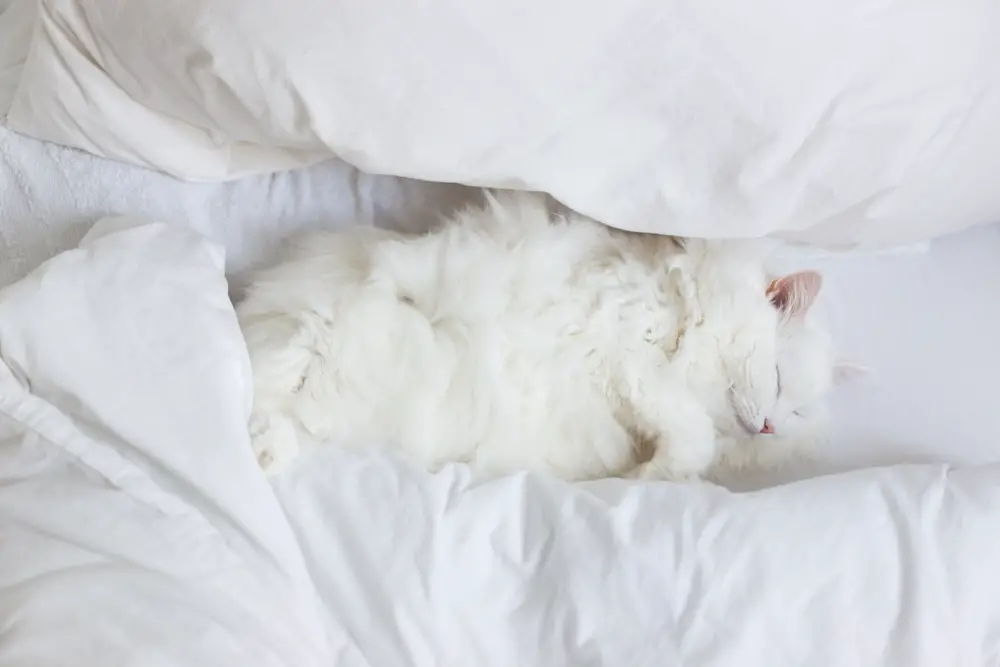
Emotional well-being is a critical factor in your cat’s sleeping habits. Cats are sensitive creatures, and their emotional state can have a direct impact on how much they sleep. Stressful environments or changes in their routine can lead to increased sleep as a coping mechanism. Alternatively, an engaging and happy environment may lead to more balanced sleep patterns.
Cats are also known to form strong bonds with their human companions, and their sleep can be a reflection of this relationship. If your cat feels secure and loved, they are more likely to sleep comfortably and contentedly. On the flip side, if they are feeling neglected or anxious, they might sleep more to escape their reality. Understanding the emotional aspects of your cat’s behavior can help you create a nurturing environment that supports their sleep and overall well-being.
7. They’re Sleepy Creatures
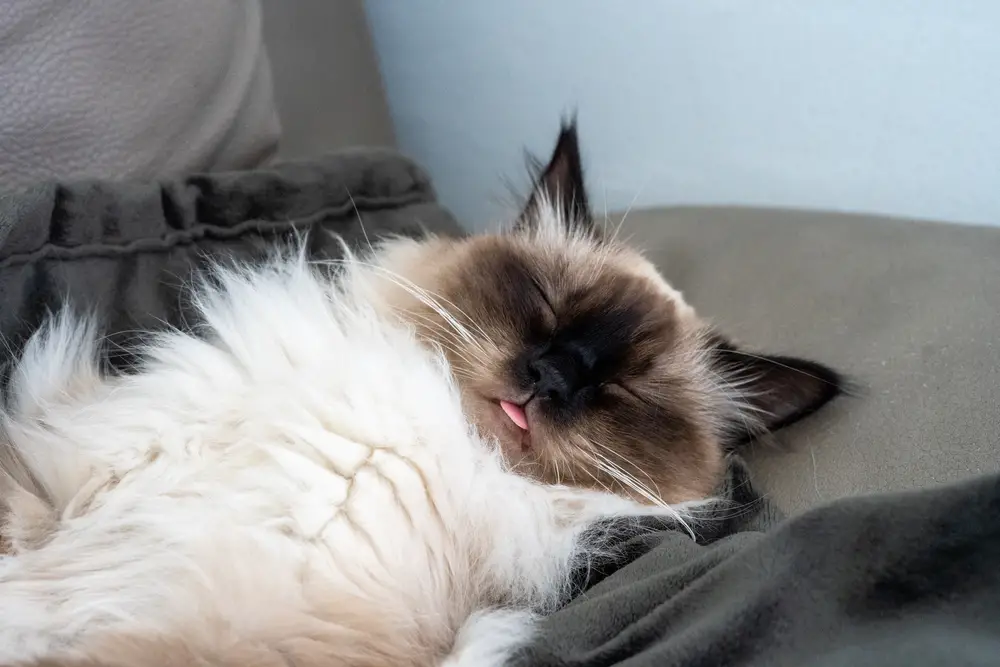
Certain cat breeds are naturally more inclined to sleep than others. For example, breeds like the Persian and the Ragdoll are known for their laid-back, relaxed nature, resulting in longer sleep periods. The International Cat Association notes that breed traits can significantly influence a cat’s behavioral patterns, including their sleep. If you own a breed known for being particularly sleepy, embrace their natural tendencies as part of what makes them unique.
Different breeds have been developed over time for various traits, and sleeping habits are no exception. These breed-specific tendencies can result from a combination of genetics and historical roles in human society. For instance, some breeds developed as lap cats, while others were bred for activity. Understanding the breed-specific sleep habits of your cat can help you appreciate their unique needs and characteristics.
8. The Weather Makes Them Sleepy
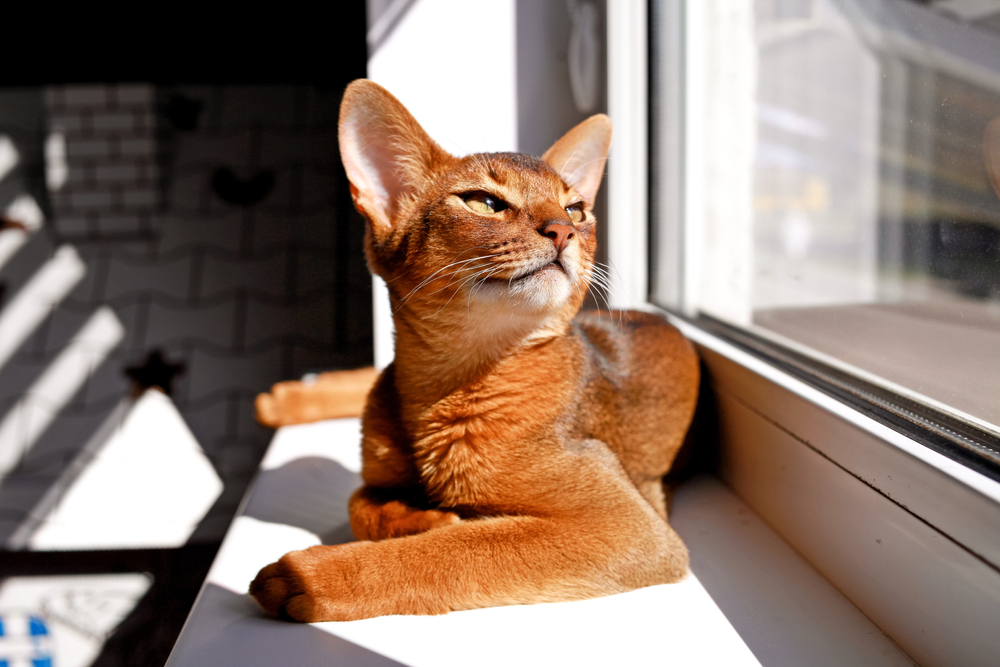
Much like people, cats can be influenced by the weather, affecting their sleep duration and patterns. During colder months, you may find your cat sleeping more, taking advantage of the warmth of blankets or a cozy spot by the heater. Conversely, extreme heat can also lead to increased rest as they try to conserve energy and keep cool. Seasonal changes can subtly alter your cat’s daily routine, affecting their sleep patterns.
Cats are known to seek out warm and comfortable places for their naps. This behavior is not just about comfort but also a way to maintain an optimal body temperature. By observing your cat’s sleeping habits across different seasons, you can gain insight into how the weather impacts their routine. Accommodating their need for warmth or coolness can help ensure they get the restful sleep they need year-round.
9. They Need Safety And Comfort
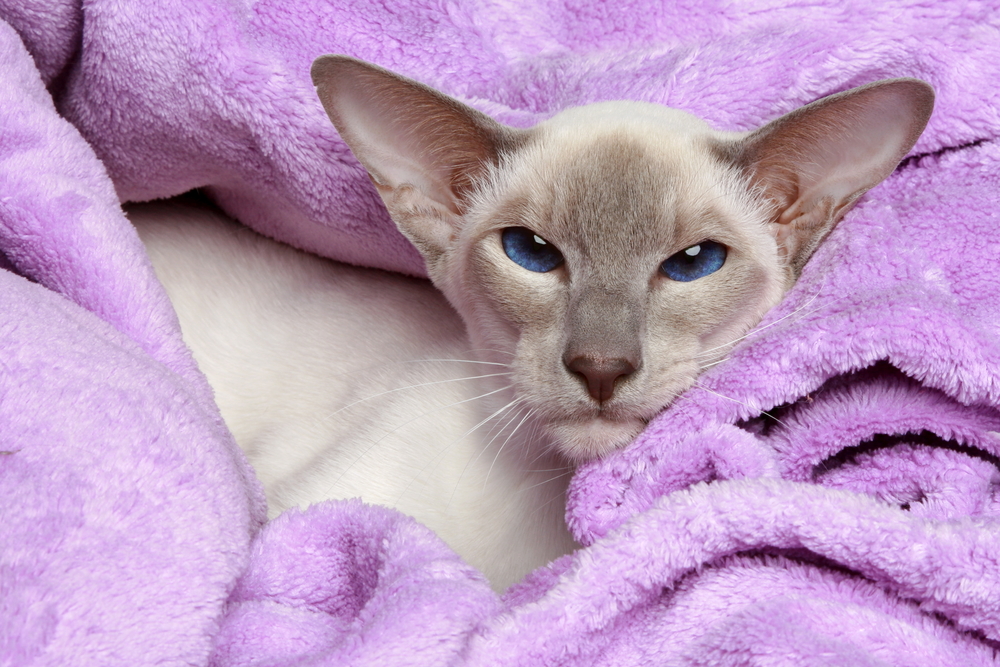
The safety and comfort of your cat’s sleeping environment can directly affect how much they sleep. Cats are more likely to sleep longer when they feel secure and unthreatened. If their environment is noisy or chaotic, you might notice them becoming more restless or sleeping in shorter intervals. Creating a tranquil and safe space can encourage more restful and sustained sleep.
Consider where your cat chooses to sleep and what that says about their preferences for safety and comfort. Cats often select locations that offer a good vantage point or a hidden nook where they feel protected. Making your home more cat-friendly, with cozy spots and elevated platforms, can enhance their sense of security. By respecting their preferences, you can help ensure they get the quality rest they seek.
10. Their Diet Influences Nap Time
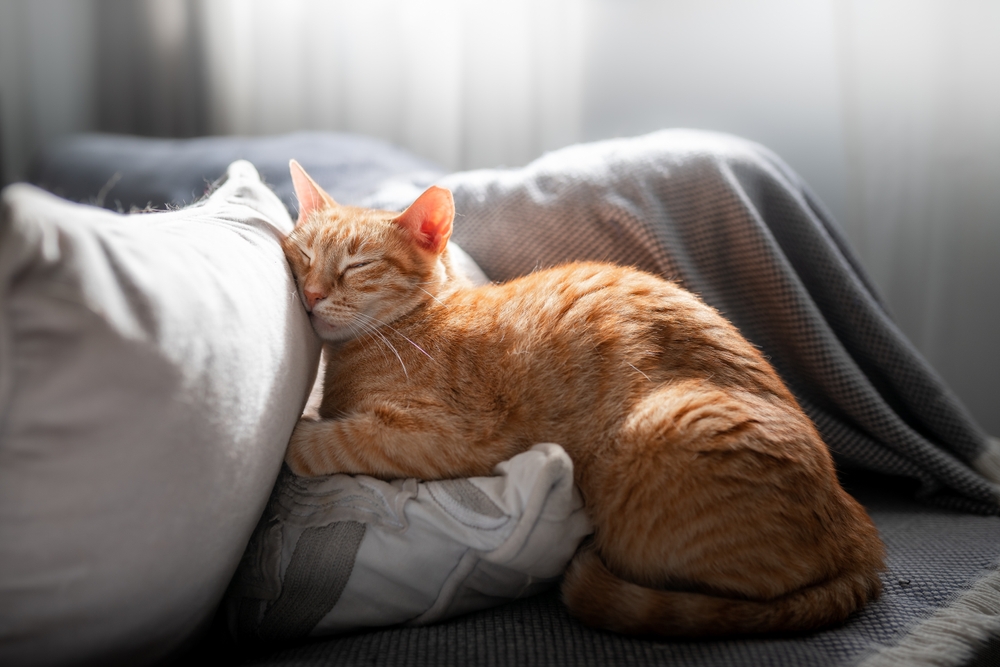
A cat’s diet can have surprising effects on their sleep patterns. Nutritional imbalances or deficiencies can lead to lethargy or increased sleep as the body struggles to cope. On the other hand, a well-balanced diet can support healthy energy levels, promoting a more dynamic lifestyle with adequate rest. Paying attention to your cat’s nutrition is crucial for maintaining their overall health and well-being.
If you notice your cat sleeping more than usual, reviewing their diet might offer some insights. Ensure they are receiving the right balance of proteins, fats, and carbohydrates to support their active and restful periods. Cats require specific nutrients like taurine, which are essential for their health and can influence their energy levels. Regularly consulting with a veterinarian about dietary choices can help optimize your cat’s health and sleep.
11. They Have Hormonal Changes Too
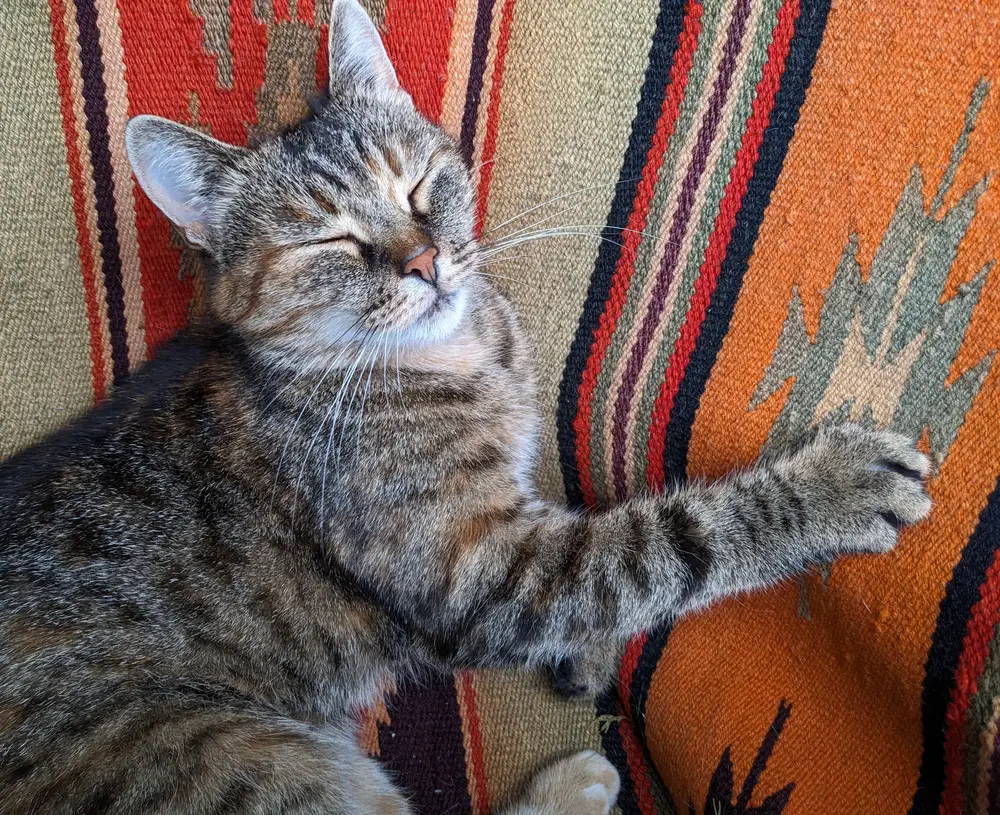
The reproductive status of your cat can also play a role in their sleep habits. Intact cats, particularly females in heat, might exhibit altered sleep patterns due to hormonal fluctuations. These changes can make them more restless or, conversely, more lethargic, depending on their cycle. Neutered or spayed cats tend to have more stable sleep patterns due to the absence of these hormonal shifts.
Understanding the impact of reproductive hormones on your cat’s behavior can help you anticipate these changes. If your cat isn’t spayed or neutered, be aware that their sleep patterns might change frequently, affecting their overall behavior. Engaging them in play and providing a consistent routine can help manage any behavioral shifts. Consider discussing with your vet the benefits of spaying or neutering, which can stabilize these fluctuations.
12. They’re Resetting Their Social Battery
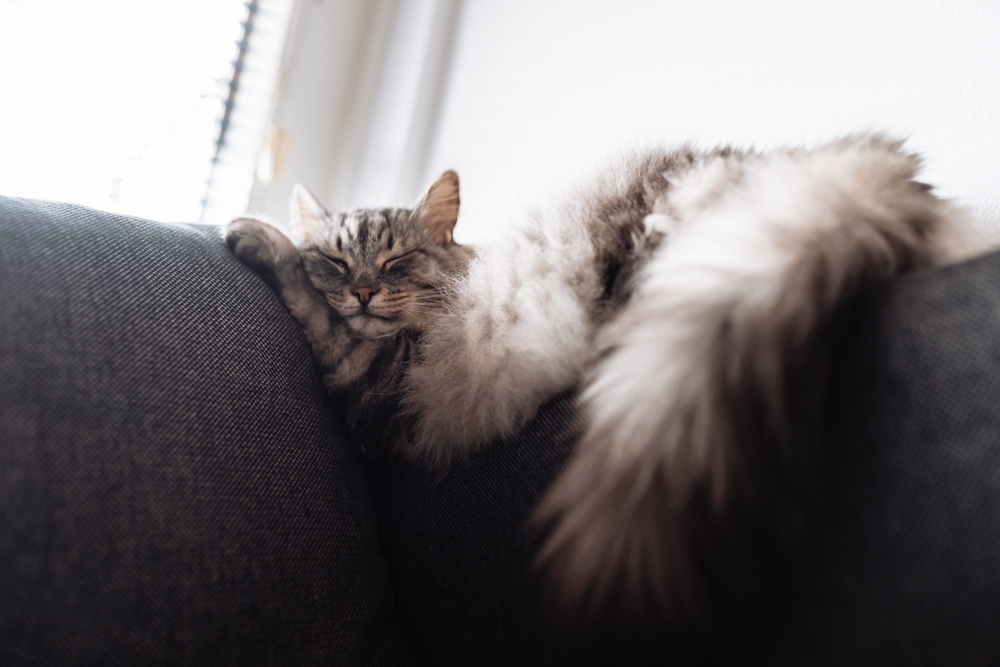
Cats are social creatures, and their sleep patterns can reflect their need for interaction and companionship. A cat that feels lonely might sleep more to pass the time, while a cat with plenty of social interaction may have more balanced sleep. If your cat seems overly lethargic, consider how much quality time they are getting with you or other pets. Social connections can play a vital role in their mental and physical health.
In multi-cat households, observe how your cats interact with each other during rest periods. Cats often form bonds that can influence where and how they choose to sleep. These social dynamics can offer insight into their comfort levels and needs for companionship. By providing opportunities for social engagement, you can enhance their quality of life and potentially adjust their sleep patterns.
13. They’re Overstimulated
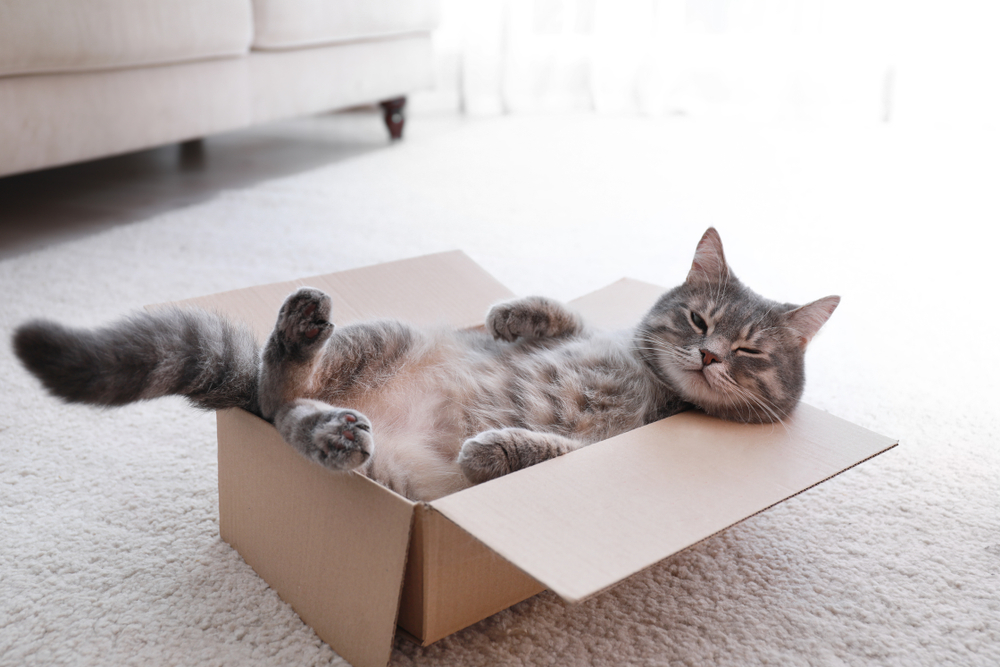
Just as physical activity is essential, so is mental stimulation for your cat’s overall well-being and sleep habits. A bored cat might sleep more simply because they lacks other forms of engagement. Providing toys, puzzles, and interactive play can help keep their minds sharp and prevent excessive sleep caused by boredom. Mental stimulation is just as crucial as physical exercise for maintaining a balanced lifestyle.
Cats thrive on novelty and challenge, and stimulating their minds can tire them in a healthy way, promoting a better balance between activity and rest. If your cat seems to be sleeping excessively, reassess their environment for opportunities to engage their curiosity. Introducing new toys or rotating old ones can reignite their interest and reduce the time spent snoozing out of sheer monotony. Keeping your cat’s mind active can lead to more fulfilling and less predictable sleep patterns.
14. They’re Creatures of Habit
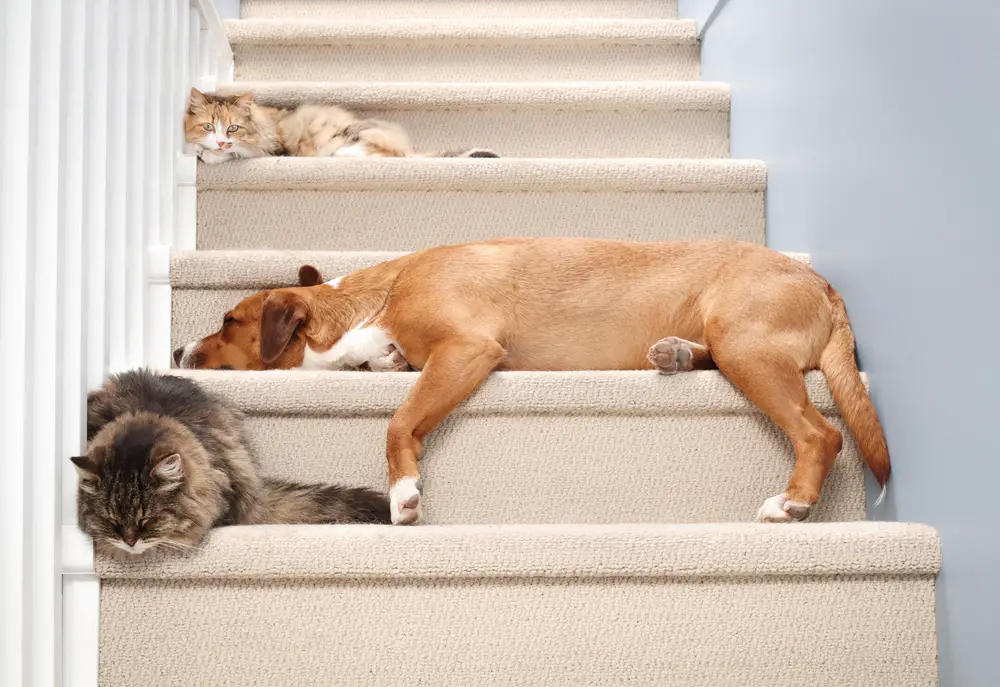
Cats are creatures of habit, and their adaptability to routines can influence their sleep cycles. If your household follows a consistent schedule, your cat’s sleep patterns will likely align with it, showcasing their ability to adapt. However, sudden changes in environment or routine can lead to shifts in how much your cat sleeps as they adjust. Their sleep habits are a testament to their resilience and flexibility.
This adaptability is part of why cats can thrive in various living situations, from bustling city apartments to quiet country homes. By observing how your cat responds to changes in their routine, you can gain insights into their stress levels and overall well-being. Small adjustments, like maintaining feeding times or play sessions, can help stabilize their sleep patterns. Embracing their adaptable nature as part of their charm can deepen your appreciation for these enigmatic creatures.
